.jpg)
This post originally appeared over at DanPerezFilms.com
Back in March, I was given the opportunity to shoot a documentary film on the VACC Camp here in Miami. VACC (Ventilator Assisted Children Center) Camp is a free week-long overnight camp for children needing a tracheotomy, ventilator, C-PAP, BiPAP, or oxygen to support breathing, and their families. The children come from all over Florida and the United States to partake in activities such as swimming, going to the beach, boat rides, field trips, campsite entertainment, and structured games. For many of the children, these are activities they could only experience at the camp.
The camp, which celebrated its 25th year in 2011, was started by Dr. Moises Simpser, Director of the Divisions of Pulmonology and Pulmonary Care at Miami Children’s Hospital. Simpser, who was born and raised in México City, México, became passionate about a camp for ventilator assisted children (several of whom were his own patients) after his own children were old enough to attend summer camp. He believed every child should have the opportunity to enjoy the highest quality of life possible, regardless of their health.
Since 1986, Simpser and his small but dedicated staff, enlist the aid of several dozen volunteers (many of whom are teenagers and medical students) to create a camp where these special needs children get to enjoy activities that are not readily accessible to technology dependent children. Moreover, the camp gives these children (and their parents) the chance to meet other campers who face the same challenges they do. Many of the children are wheelchair bound and have limited, if any, movement from the neck down.
Feeling sorry for them yet? Don’t. Know why? Because as tough as you think these kids have it, they don’t feel sorry for themselves. The truth is, I learned more important life lessons during my week-long shoot at the camp than I could have ever expected...
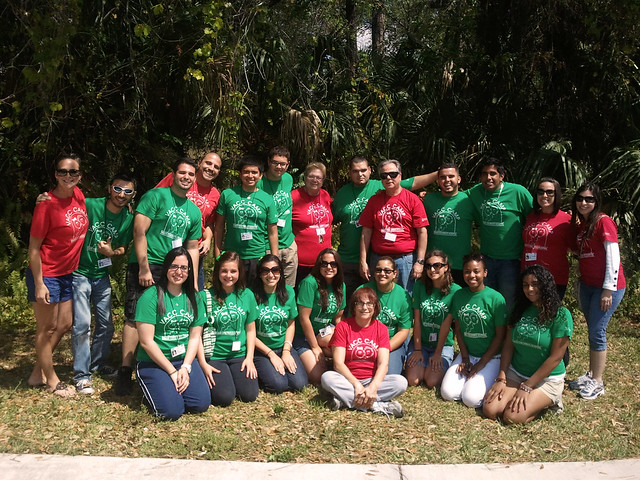
1) There Are People Out There Who Still Give A Damn
OK, so I kind of knew this already but that’s where it always begins, yes? Someone has to first give a damn about something and then get others to also give a damn before any great thing gets done. Dr. Simpser, who has remarkably very little tolerance for the word “no”, has gotten other people to give a damn about a camp for these children…and it hasn’t come easy. From securing a location (A.D. Barnes Park in Miami) and eliminating any safety hazards, to arranging transportation for the children (many of whom have oxygen-equipped wheelchairs that can weigh up to 500 pounds), providing daily meals (breakfast, lunch, dinner & snacks), boat rides (courtesy of Shake-A-Leg), overnight medical staff, and about 1001 other things that need to happen for a camp like this one to be successful. Simpser’s dogged determination and that of his staff have kept this camp in motion for 25 years. Funny what you can accomplish just by giving a damn.
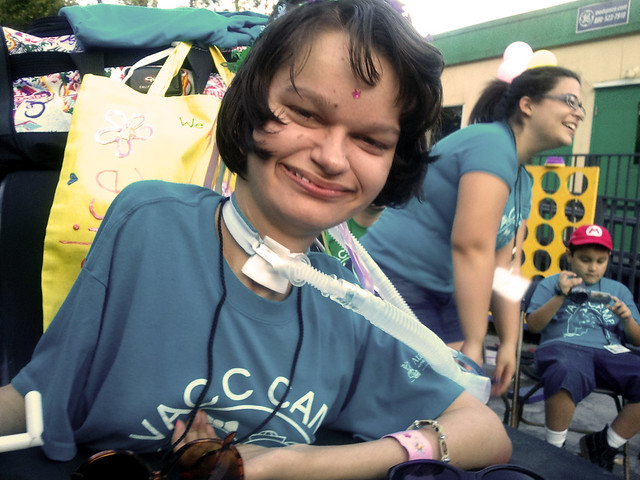
2) You’re Only As Normal As You Think You Are
As part of my documentary shoot, I wanted to speak to several of the campers on camera to get their views on the camp as well as their own condition. Annelise, who has attended the camp for 6 years, was one of the children I interviewed. Annelise is confined to a wheelchair and needs to be connected to a ventilator 24 hours a day so that she can breathe. Betrayed by her muscles, she can muster just enough movement in her arms to get a chop stick in her mouth so that she can reach her blackberry to send text messages and update her facebook page (she puts most “normal” people to shame with the speed of her texting). When I asked her how she deals with her limitations, she replied, rather defiantly, “I don’t know about them (the other campers), but I can do the same stuff that normal people do.”
So many people see themselves as inferior because they feel they’re too fat, too skinny, have too many pimples, have too little hair, have boobs that just aren't big enough, suck at sports – while a young girl who can’t breathe, walk, or eat on her own sees herself as “normal”. I guess “normal” is just a state of mind, isn’t it?
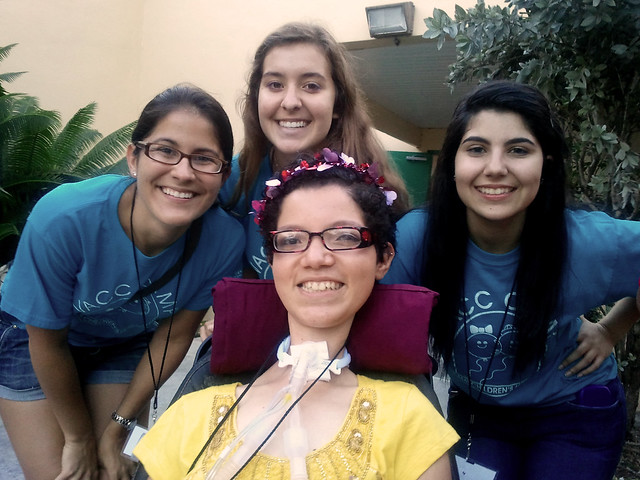
3) Setting Goals Is Important
Maylan, who lives in Miami and is cared for by her mother, was another camper I had the pleasure of interviewing. Maylan faces the same challenges as Annelise: confined to a wheelchair, needs to be connected to a ventilator 24/7, and has limited movement below her shoulders. When I asked her what she sees herself doing over the next 10 years, I was quite surprised by her answer. She hopes to somehow attend John Hopkins University and go on to become a psychiatrist so that she “can help people with their problems”. After she retires, she plans on returning to school to become a marine biologist and live by the ocean. “I have my whole life planned out”, she said with a grin that would light up a cave.
You think goals are just something you write out on a piece of paper because that’s what your Tony Robbins audio book said you should do? For some people, goals are what keeps them going; gives them a reason to get through another day; gives them the strength to look life in the face and say, “You’ll never get the best of me until I’m done with these things.” I took a fresh look at my own goals and realized that, compared to Maylan’s, they were pretty weak – I'm gonna change that.
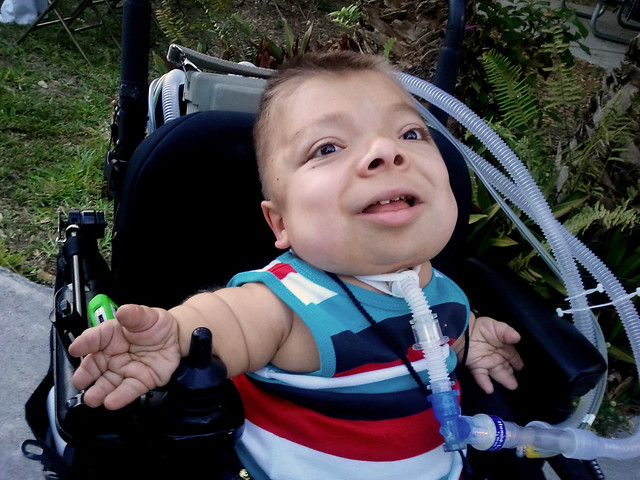
4) You Only Have One Life
Chris was another camper I was able to interview for my film project. Chris is perhaps one of the most popular kids in the camp. He can talk “smack” with the best of them, is a die-hard Lakers fan, and can often be seen zipping along on his motorized wheelchair at its top speed (which is pretty darn fast!). Chris, who made the journey with his mother all the way from New York City, suffers from an unusually rare disease known as Thanatophoric dysplasia - a severe skeletal disorder characterized by extremely short limbs and folds of extra skin on the arms and legs. Infants born with this affliction are usually stillborn or die shortly after birth from respiratory failure. Chris has managed to make it to 13 years old and it’s his mother’s steadfast belief that the main reason for that is because he looks forward to VACC camp every year. I asked him how he manages to keep such a positive outlook on his situation and he replied, “You only have one life so enjoy it as much as you can. When the time comes, that’s the time – that’s it.” One life. We all know that…right? We’d never let fear, envy, anger, or resentment keep us from making that one life a purposeful one, right? A remarkable one, perhaps? Of course not.
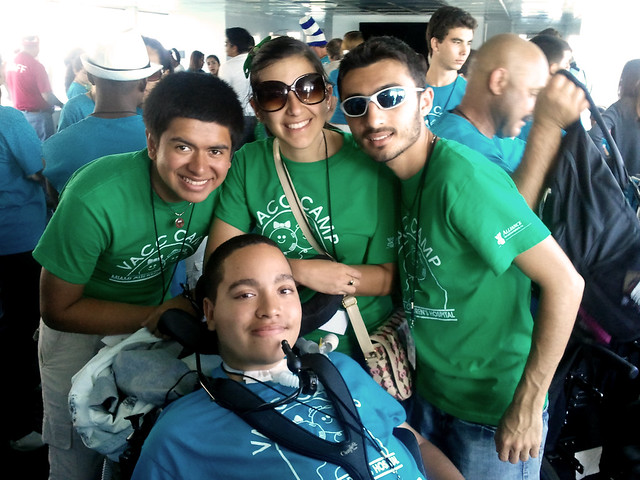
5) Helping Other People Can Change Your Life
VACC Camp is made up solely of volunteers. Dr. Simpser is a firm believer that you get way more from people when they volunteer for service than when you pay them (don’t get him started on that). Many of the volunteers are teenagers who give up their Spring Break to assist the campers for the week. VACC Camp staff go to the local High Schools to recruit new volunteers every year. Once enlisted, volunteers must complete several basic medical training sessions (these are mandatory). At first, students sign up just to get the community service hours (and the fact that three free meals are also provided daily). But as volunteer after volunteer confessed to me, the camp ultimately becomes a life-changing experience.
Several of the volunteers I spoke with were on their second, third and fourth tours of duty with the camp. Many of them stated that they look forward to the camp every year and couldn’t think of spending their Spring Break doing anything else (did I mention these were mostly teenagers?). Volunteers are assigned specific campers and they become their “Buddies” - they help feed, clothe, and bathe the campers as needed. As the week goes by, there’s a bond that develops between the volunteers and the campers. To the young volunteers, there’s the good feeling that comes from “mattering” to someone else but during that same week, they also begin to understand that the campers matter to them as well. One of the volunteers put it this way: “These kids have a really hard life but at the same time, these are probably the happiest people you get to meet…ever. You can’t help but change and become a better person for it.”
When we stop to help others, we help ourselves, too.
Reflection [video]
Here's a video I produced that illustrates what VACC Camp is about much better than words ever can. Enjoy...
No comments:
Post a Comment